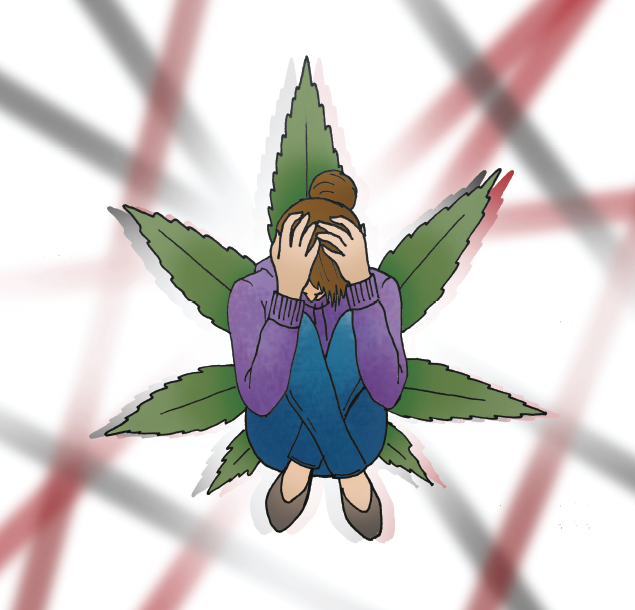
A new Yale study indicates a possible link between marijuana use and negative health outcomes for patients with post-traumatic stress disorder — a qualifying condition for medical marijuana in at least nine states, including Connecticut.
Researchers at the Yale School of Medicine found a correlation between recreational marijuana use and higher levels of PTSD symptoms, violent behavior, alcohol abuse and drug abuse among veterans completing specialized Veterans Affairs treatment programs between 1992 and 2011. The connection, although not confirmed as causal, points to a need for more research into marijuana’s effects as a medical treatment, the researchers said. The study was published in the Journal of Clinical Psychiatry in September.
“What I hope this paper does is it gives psychiatrists and other providers pause before they go ahead and give the green light for folks suffering from PTSD to smoke as much marijuana as they want and consider that it might not help and might even be associated with a worsening of the disorder,” said fourth-year Yale psychiatry resident and lead study author Samuel Wilkinson.
The study involved analysis of data, taken at program admission and four months after discharge, from 2,276 veterans in the Veterans Health Administration system. The researchers split the veterans into four groups: “never-users,” who did not report use at either time point; “stoppers,” who reported use at admission but not after discharge; “continuing users,” who reported use at both admission and discharge and “starters,” who reported use after discharge but not at admission. The veterans reported recreational use, and none were prescribed medical marijuana.
The researchers found that outcomes across all four measures — PTSD symptom severity, violence, alcohol abuse and drug abuse — were worst for starters, who, along with continuing users, had significantly higher measures of PTSD symptom severity after discharge than stoppers and never-users. Starters also showed significantly higher measures of violent behavior after discharge than all other groups. Continuing users also reported higher levels of alcohol and drug abuse than never-users and stoppers, who reported the best outcomes.
The researchers selected the veterans from a sample that included more than 47,000 who entered the Veterans Health Administration’s programs with a PTSD diagnosis during the 20-year period. They excluded those who reported prior excessive alcohol use, those who reported recent use of drugs other than marijuana at admission and those who entered treatment from programs that would have restricted their access to alcohol and drugs to minimize confounding effects of substances other than marijuana. The study’s results contradict those of several recent preclinical and survey studies that suggest that medical marijuana may hold therapeutic benefits for PTSD patients. Though a definite answer on marijuana’s potential as a medical therapy is outside the study’s purview, the study’s results underscore a need for more research into the drug, which has been legalized more on the basis of public opinion and political pressure than scientific evidence, according to Robert Rosenheck, senior author and professor of psychiatry and public health at the Child Study Center at the School of Medicine. Medical marijuana is now a legal prescription for various conditions in at least 23 states, according to the study.
“This is a particularly dramatic test case because the [Connecticut] legislature had come out with a treatment recommendation on the basis of no scientific evidence,” Rosenheck said.
Wilkinson and Rosenheck are not the only researchers at Yale to argue that medical marijuana should be subject to a stricter approval process. In June, the Journal of the American Medical Association published an editorial written by Deepak Cyril D’Souza and Mohini Ranganathan, both researchers and psychiatry professors in the School of Medicine, in which the authors argued that legislators lack sufficient evidence to approve marijuana as a medical treatment and, by doing so, are putting “the cart before the horse.”
D’Souza, who recently received funding from the National Institute on Alcohol Abuse and Alcoholism to conduct research on the effects of concurrent alcohol and marijuana consumption on driving ability, said states should shoulder the responsibility of supporting research to answer the questions that still remain about the effects of marijuana use.
“The process by which states have approved new indications for medical marijuana leaves a lot to be desired,” D’Souza said. “I think that there should’ve been more careful review of the evidence, which I don’t think happened.”
Other conditions that can qualify patients for medical marijuana in certain states include cancer, glaucoma, HIV/AIDS, Parkinson’s disease, multiple sclerosis, Crohn’s disease and epilepsy.







